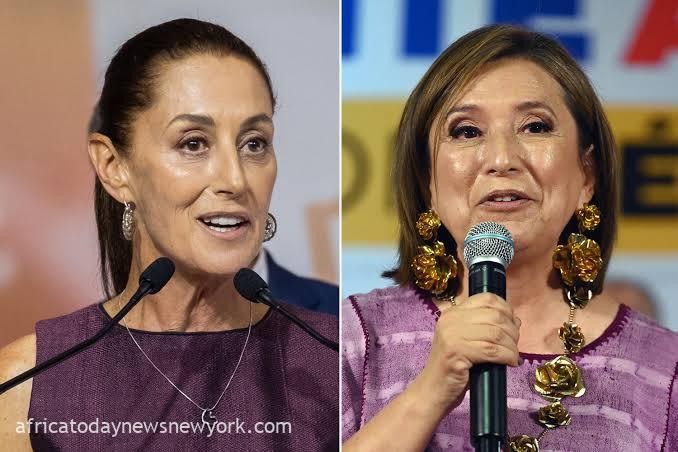As of Friday, the race for Mexico‘s upcoming elections officially kicked off, setting the stage for what could be a groundbreaking moment in the nation’s history—the potential election of its first-ever female president, an event that would mark a seismic shift in a society deeply rooted in machismo.
Under the cloak of night, opposition candidate Xochitl Galvez inaugurated her campaign in one of Mexico’s most hazardous states, tapping into voter concerns regarding the nation’s pervasive violence.
The prevailing sentiment in public opinion polls suggests that she is in for a formidable showdown against Claudia Sheinbaum, the ruling party’s nominee and former Mexico City mayor, who maintains a close alliance with outgoing President Andres Manuel Lopez Obrador, commonly referred to by his initials, AMLO.
As the countdown to the June 2nd election enters its final three months, Sheinbaum, a 61-year-old scientist by trade, holds a substantial advantage with 63 percent backing, as indicated by an amalgamation of polls conducted by the Oraculus research firm.
Both aged 61, Galvez trails with 31 percent support, while Jorge Alvarez, aged 38 and representing the Citizens’ Movement party, is a distant third with only five percent, according to polls.
What hangs in the balance is the trajectory of Latin America’s second-largest economy—a nation of 126 million individuals that serves as a cornerstone of trade for the United States and a sought-after destination for tourists.
Read also: Apostle Suleman Feeds Migrants At Mexico-US Border
However, Mexico grapples with formidable challenges, including illegal migration and the pervasive impact of drug-related violence.
In an effort to draw attention to the country’s security issues, Galvez, a prominent Indigenous businesswoman, orchestrated a nighttime rally in the city of Fresnillo, situated within the violence-plagued central state of Zacatecas.
She spearheaded a candle-lit march through the city streets, culminating in a joint appearance on stage with a relative of one of Mexico’s 100,000+ missing individuals. Their collective moment of silence paid tribute to the victims of violence.
“Here in Fresnillo, as in all of Mexico, people are afraid,” Galvez said, hitting out at Lopez Obrador’s “hugs not bullets” strategy to tackle violent crime at its roots by combating poverty and inequality, rather than using military force.
“Hugs for criminals are over,” she said.
“To have a Mexico without fear, we’re going to restrain the most violent and aggressive criminal organizations in our country,” she added.
This served as the kickoff to a series of planned visits to cities identified by their residents as among the most unsafe in Mexico, providing a platform for Galvez to underscore what she argues is the government’s inability to address the escalating violence.
Since 2006, nearly 450,000 people have lost their lives to violence in Mexico, a stark reality that coincides with the launch of a contentious anti-drug military initiative by then-president Felipe Calderon, as per official data.
